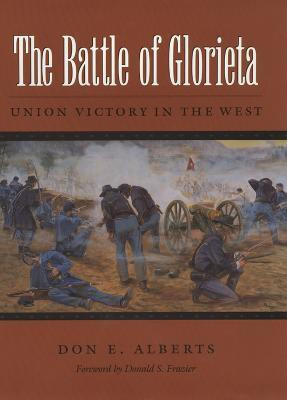The Battle of Glorieta(English, Paperback, Alberts Don E.)
Quick Overview
Product Price Comparison
On the morning of March 26, 1862, Confederate and Union armies met in Glorieta Pass in the southern Sangre de Cristo Mountains of New Mexico. A series of skirmishes, jockeying for position, and a pitched battle on March 28 took a heavy toll on both sides and left the Rebels under Gen. Henry Hopkins Sibley apparently victorious over Gen. John P. Slough's troops. However, the tide turned when Union soldiers under Col. John Chivington located the Confederate supply train and destroyed it. Without supplies, replacement arms, and ammunition, the Rebel troops could not maintain themselves against the still strong Federal forces in the area. After a few additional skirmishes, the dispirited and disorganized Rebels straggled back to Texas. The Confederate quest for expansion into the Southwest was abandoned. The Battle of Glorieta, some twenty miles southeast of Santa Fe, marked the Rebels' farthest advance northward in the Far West, just as the encounter at Gettysburg the following year would define their farthest significant northward penetration in the eastern theater. The Battle of Glorieta: Union Victory in the West offers the first full, detailed, and accurate history of this blind, groping struggle in the smoke-filled Glorieta valley. The definitive work on the battle, it includes not only the Confederate organization and approach to the key battle, but also that of the Federal military units as they organized within New Mexico and Colorado Territories. It incorporates for the first time under one cover all the known Union participant accounts, including a number never before published. Based on his own research on the battlefield, Don E. Alberts also presents a thorough understanding of the deployment of troops and their actions. Alberts reveals, with rigorous supporting evidence, a whole new site for the Battle of Apache Canyon, miles from that previously described. From his field research and discovery of artifacts, he details the exact complement of both Confederate and Federal artillery. Finally, he marshals evidence to reach the startling, yet now inevitable, conclusion that the Battle of Glorieta was indeed a clear and significant Union victory.


